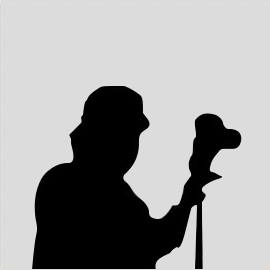0 Likes
Charles Bridge (Czech: Karlův most [ˈkarluːf ˈmost] (About this soundlisten)) is a historic bridge that crosses the Vltava (Moldau) river in Prague, Czech Republic. Its construction started in 1357 under the auspices of King Charles IV, and finished in the beginning of the 15th century. The bridge replaced the old Judith Bridge built 1158–1172 that had been badly damaged by a flood in 1342. This new bridge was originally called Stone Bridge (Kamenný most) or Prague Bridge (Pražský most) but has been "Charles Bridge" since 1870. As the only means of crossing the river Vltava until 1841, Charles Bridge was the most important connection between Prague Castle and the city's Old Town and adjacent areas. This "solid-land" connection made Prague important as a trade route between Eastern and Western Europe.





Prague, the capital of the Czech Republic, has long attracted artists and wandering spirits, although it was originally inhabited by prehistoric fish. Their inland sea filled the basin contained by the Tatras and Carpathian mountains, but when it eventually dried up they were forced to yield the terrain to dinosaurs, wooly mammoths and Neanderthals. In human times the Celtic tribes came to reside here, leaving remains dating back to the 4th Century B.C. Their tribal name, Boii, gives the root of the word "Bohemia". The three separate territories of Bohemia, Silesia and Moravia now make up the modern Czech Republic, which split from Slovakia in the 1993 "Velvet Divorce." Thanks to its enigmatic founder, the city of Prague derives a magnetic appeal for visionaries, scientists and astronomers. The historical figure credited with the launch of Prague is Princess Libuse, a visionary prophet and warrior who once stood atop the hill at Vysehrad and made the prophecy as follows, "I see a vast city, whose glory will touch the stars!" This indeed came to pass after she took Otokar Premysl to be her husband and King, launching the Premyslid dynasty, and leaving it to rule for the first four hundred years of Czech history. When the last Premyslid king, Wenceslas III, died without producing a male heir, the fourteen year-old John of Luxembourg came to take the throne of the Czech lands. Hot-headed John died in battle, but his diplomatic son Charles IV inherited the throne and, through keen multi-lingual savvy, managed to both keep it and earn the title "Father of the Czech Nation." Charles IV was the first of the Holy Roman Emperors here; he ruled during the height of Prague's elegance and splendour. This is the man to know if you want to understand Prague's layout. He sponsored the construction of such landmarks as the Charles Bridge, the Hunger Wall and St. Vitus' Cathedral, as well as personally designing the neighborhood called New Town (Nove Mesto) which has for its center Karlovo Namesti or Charles Square. The city displays every branch of architecture across the last thousand years, including Cubism, a style which you will be hard-pressed to find applied to buildings anywhere else in the world. Beyond the stunning visual makeup of the city, there is a wealth of nightlife and entertainment, beginning with the legendary concert halls including the Rudolfinum, National Theater, Estates Theater and the Municipal House. After investigating the Castle and Bridge, which are the most heavily-trafficked tourist areas, take a look around Zizkov and Letna, two of the cooler neighborhoods for bars and restaurants. However quiet it may seem after ten PM, Prague is alive and throbbing in an endless array of basement bars, pubs, clubs, discos and pool halls waiting to be discovered by the intrepid subterranean adventurer. To get an idea of what lies in store, check out the panoramas for Chateau and Palac Akropolis and when you're out and about, make sure you look for the stairs down to the cellar. Apart from shopping, eating, drinking and wearing out your digital camera, delve into the rich green carpet of Prague's parks, many of which lie only walking-minutes from the city center.Text by Steve Smith.